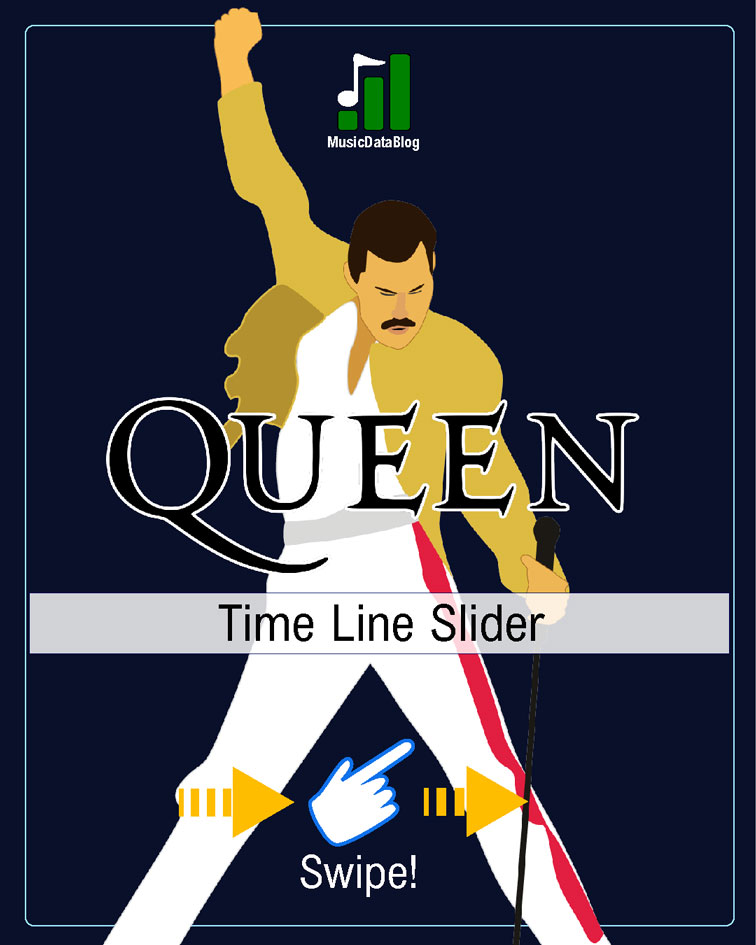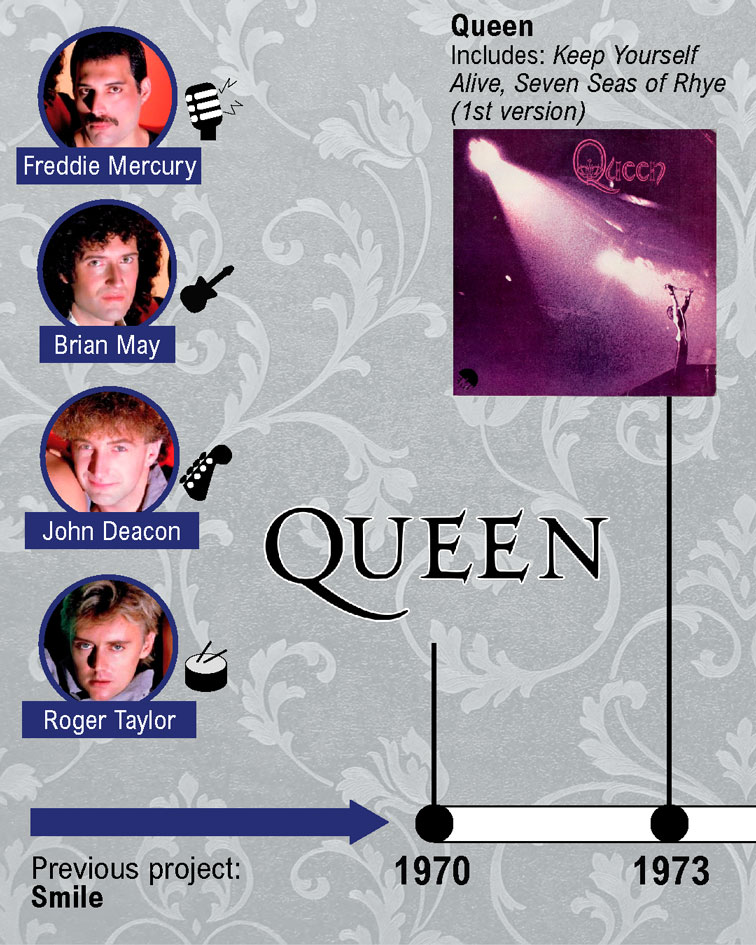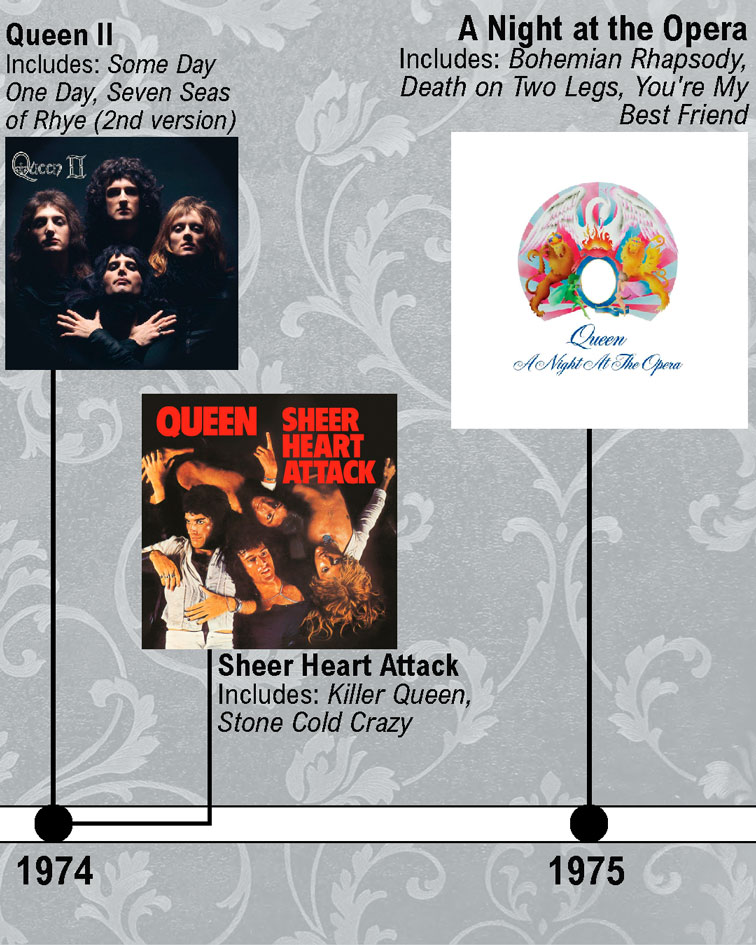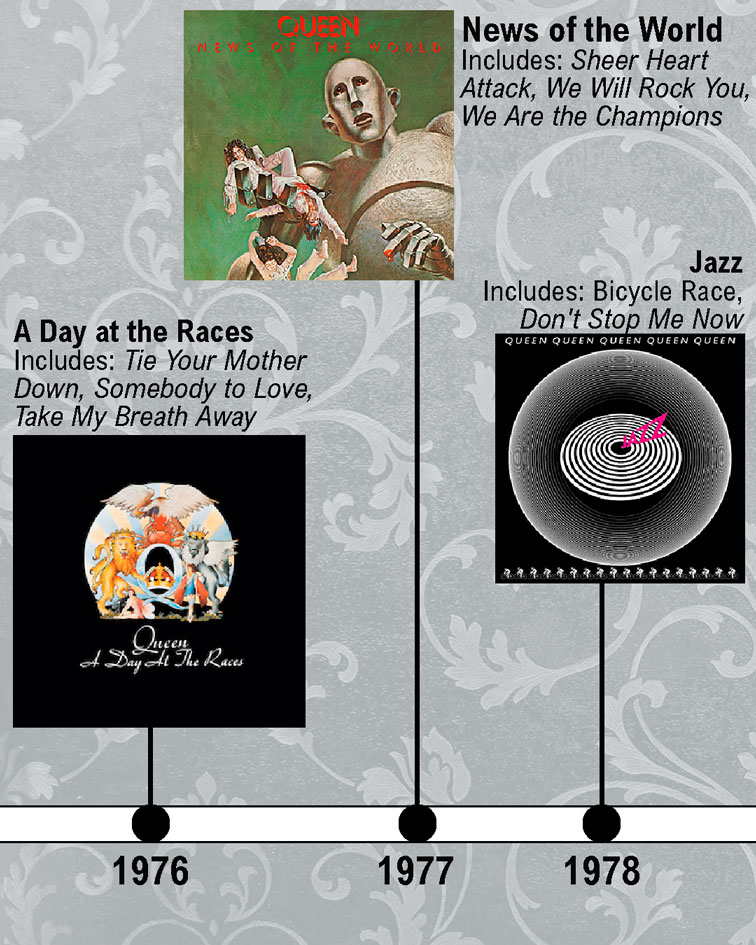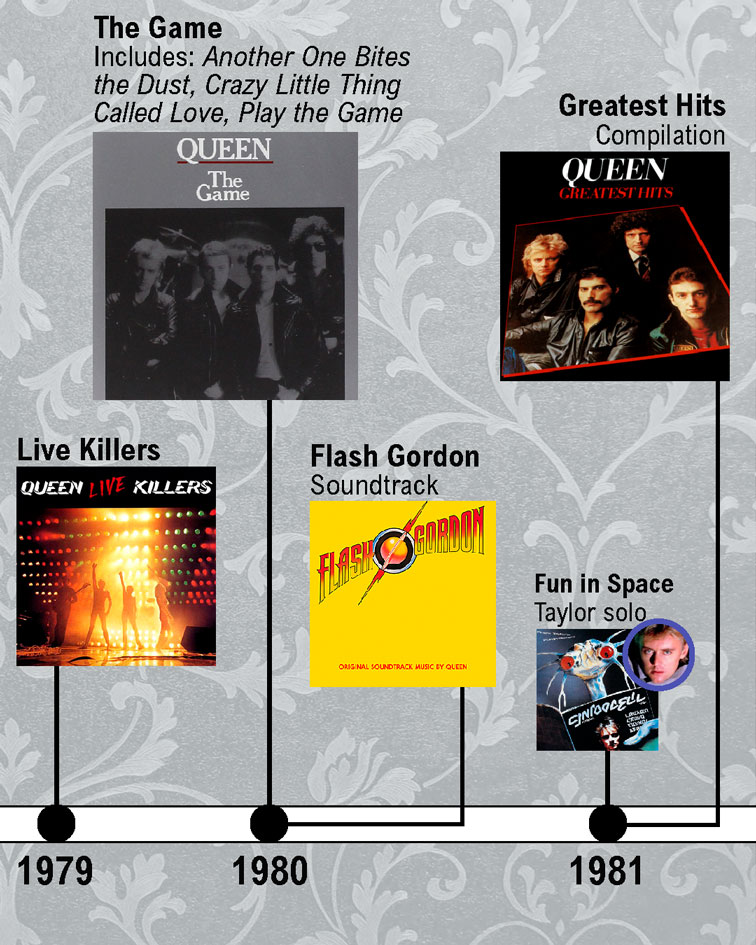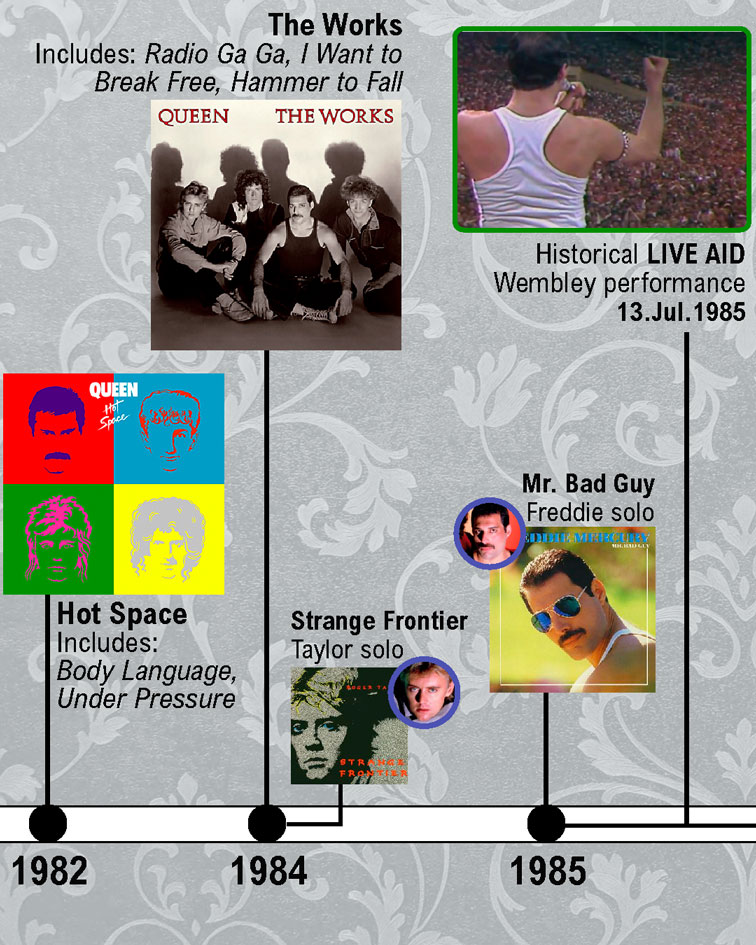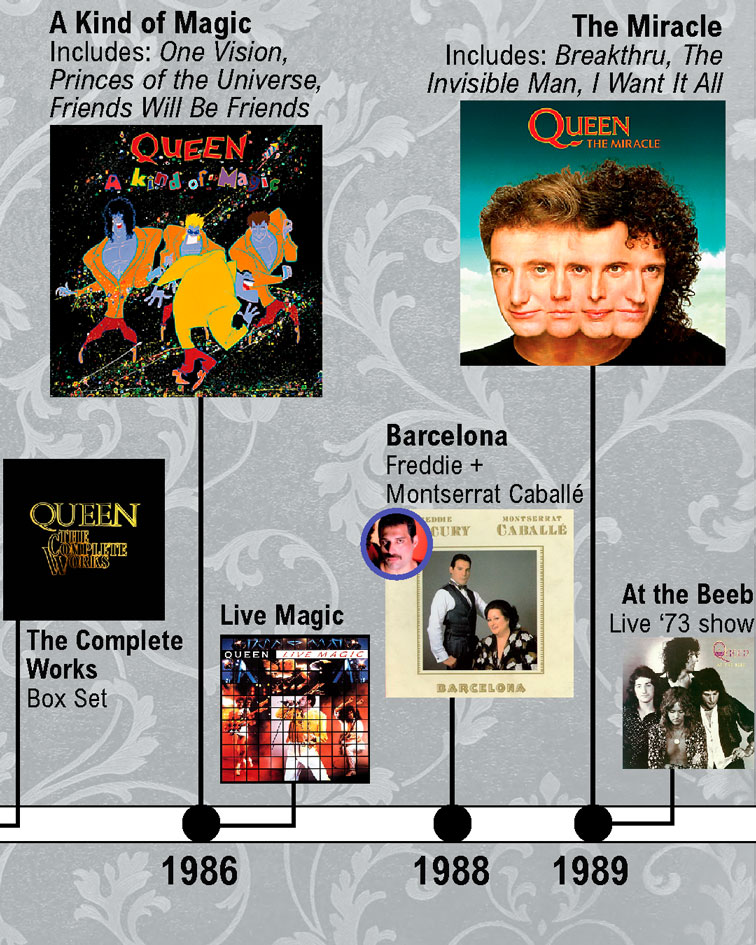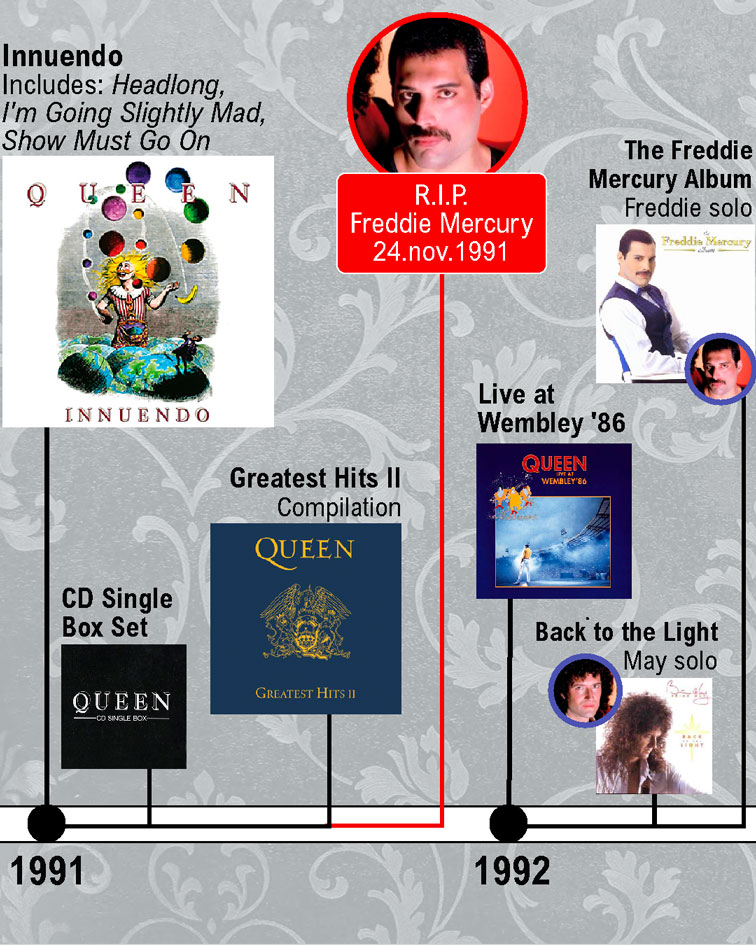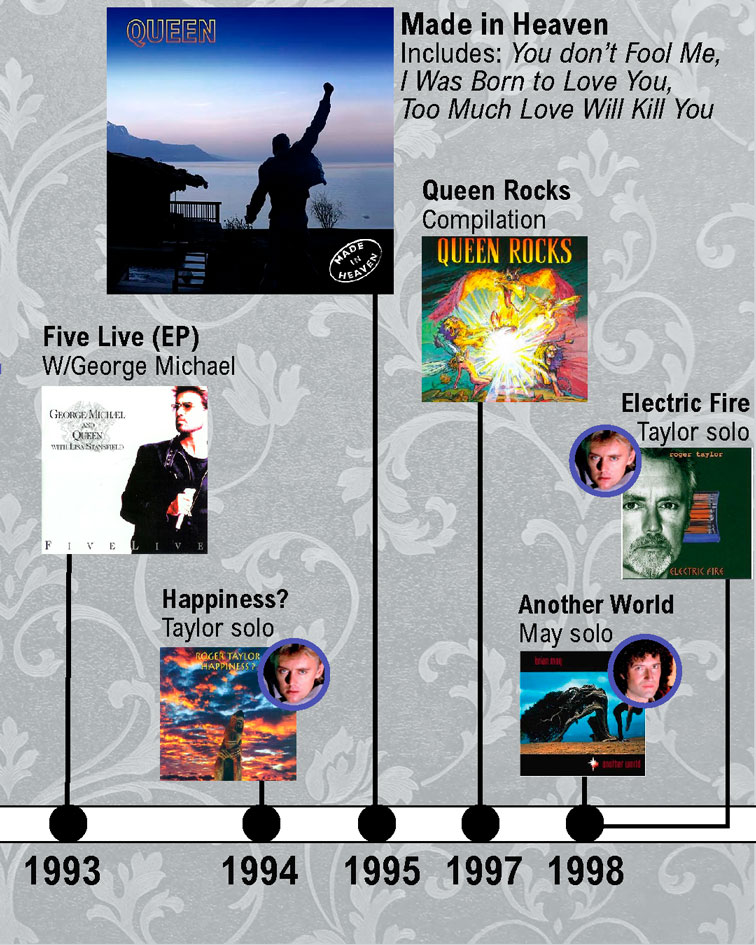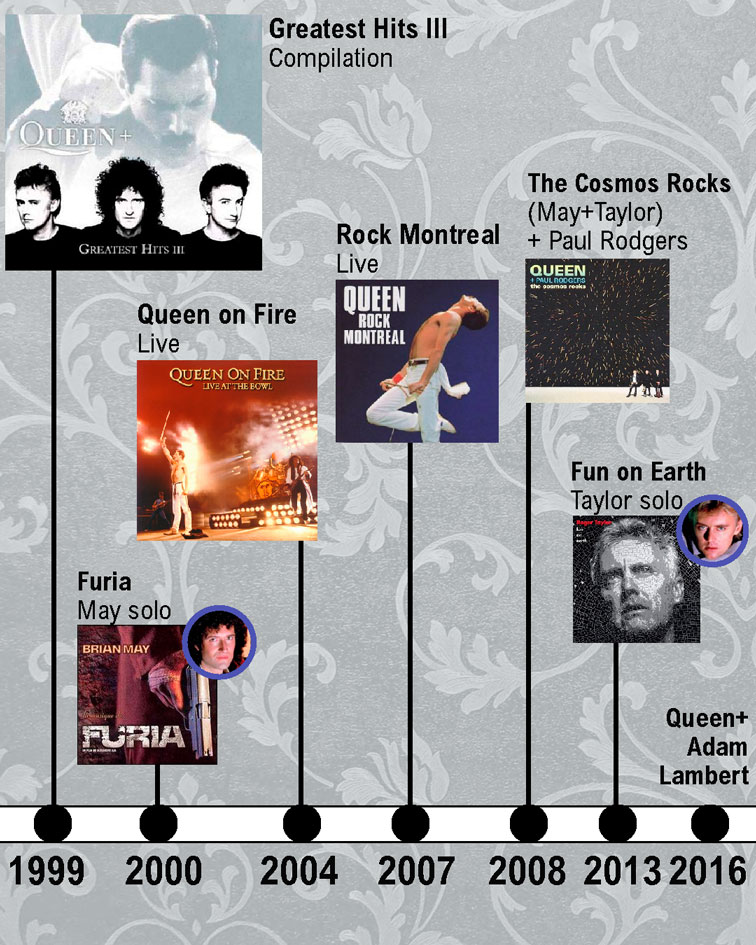Find in this timeline below the history of the British rock band Queen. Learn right here how frontman Freddie Mercury became one of the most important figures in rock and pop culture.
Queen was one of the most iconic rock bands of the seventies, eighties, and nineties. During their career, they incorporated musical styles such as rock, pop, disco, glam and progressive. Queen’s members were: Freddie Mercury (vocals and piano), Brian May (guitar), John Deacon (bass), and Roger Taylor (drums).
The history of Queen: a short summary
Queen’s musical career beginnings
Before the band Queen started, the previous project was called Smile and did not include lead vocalist Freddie Mercury. With the incorporation of Mercury, the band adopted the name Queen and by 1973 they obtained a record contract. After releasing their first two albums, Queen (1973) and Queen II (1974) to not much success, they gained some media attention with the release of their third record, Sheer Heart Attack, in 1974.
Mainstream success in the mid-70s
1975 was the year that Queen rose to stardom: A Night at the Opera was released and they reached the peak of their popularity. This album is notable for including the classic Queen hit track, Bohemian Rhapsody. The next year, in 1976, the band released a sequel to this album called A day at the Races, which contains classics such as Somebody to Love and Tie Your Mother Down. Nevertheless, it was not as successful as its predecessor.
News of the World was released in 1977. It was an album that kept Queen on the top of the music charts, with songs like We are the Champions and We Will Rock You. Then the band recorded the album Jazz in 1978, which included the hit single Don´t Stop Me Now.
Queen and their 80s hits
By 1980, another relevant album, The Game, revalidated Queen’s credentials as one of the most important music bands of the century. In this record hit songs such as Another One Bites the Dust and Crazy Little Thing Called Loves are featured.
Queen collaborated with music legend David Bowie on their classic track Under Pressure, which appeared on the album Hot Space in 1982. Regardless of this historical collaboration, this disco-influenced album is not well regarded by the public or the music press.
1984 was the year that hit songs such as Radio Gaga and I Want to Break Free, which belong to the album The Works, enjoyed heavy radio rotation. The Next year, in 1985, Queen played their historical Live Aid concert in Wembley Stadium, which lasted 20 minutes.
In 1986 Queen released A Kind of Magic, which included relevant songs such as One Vision and the title track. Three years after this, in 1989, the Miracle was released. It contains some well-known Queen songs, such as I Want It All, The Invisible Man, and Breakthru.
The 90s: Freddie’s final recordings
The last years in the life of Freddie Mercury were not easy for him, especially regarding his health. He could not deliver the same energy and vocal performances as in previous years. Nevertheless, in 1991 Queen managed to release what would be their last album while Mercury was alive: Innuendo. Then, on November 24, 1991, the great Freddie Mercury passed away.
After the death of Freddie Mercury, Queen released one more album in 1995, called Made in Heaven. It was recorded using the vocal tracks that the singer left before passing. The album includes popular songs such as You Don´t Fool Me, I Was Born to Love You, and the title track.
Without Freddie, there is no Queen
After this final album with Freddie Mercury on vocals, Queen disbanded. John Deacon retired completely from music, while Roger Taylor and Brian May continued playing some of Queen’s classics with many different singers.

